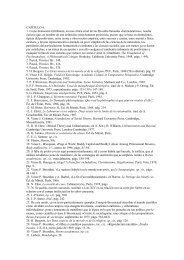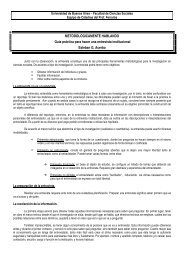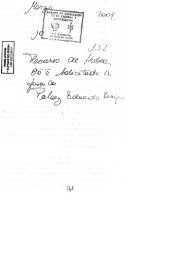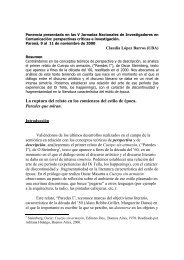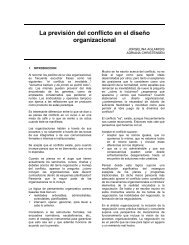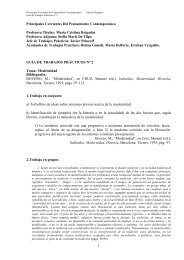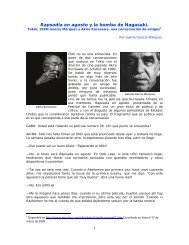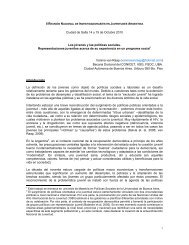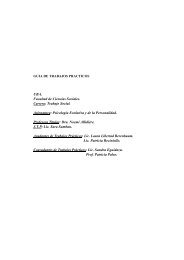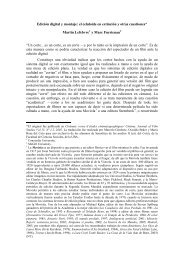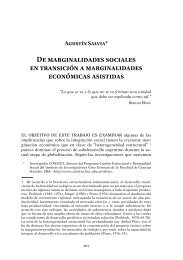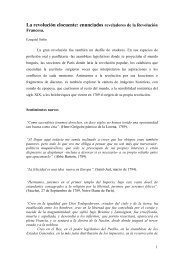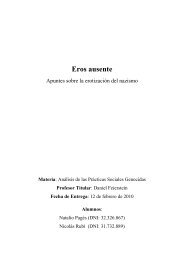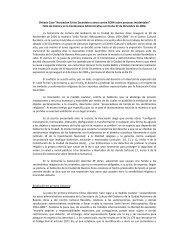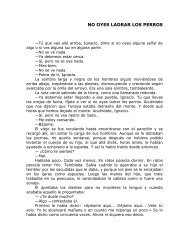Charisma Reconsidered
Charisma Reconsidered
Charisma Reconsidered
Create successful ePaper yourself
Turn your PDF publications into a flip-book with our unique Google optimized e-Paper software.
nothing prior to itself other than more taboos, such as the taboo on the body of<br />
the chief. But here we face a familiar trouble. The mana of the imposer is the<br />
source of the power of interdiction. But mana is as unhelpful a concept as<br />
charisma, in the sense that it too is a dead end. In these societies, power is the<br />
power to interdict, and mana is a name for this power, not an explanation<br />
(Steiner, 1967 [1956]: 110). This is a difficult notion to grasp, but the point can<br />
be made with a simple example. As a child I lived in a Catholic neighborhood,<br />
where the Monsignor of the local parish church routinely imposed interdictions –<br />
on forms of behavior and dress, on membership in organizations, even on what<br />
bars to patronize. What was the religious ‘authority’ for this? There was no literal<br />
authority, though there was the notion that he possessed delegated powers from<br />
the Pope, who had them delegated from Jesus through Peter – hardly an active<br />
consideration for those choosing what bar to patronize. Yet the uncertainty<br />
surrounding the dangerous powers of the Monsignor himself meant that to<br />
violate them was to act dangerously. Similarly for the imposition of taboo: what<br />
enables the imposition of taboo is not a power of an imposer, like magic, or<br />
charisma, which is a term like mana, but the effect of the act of interdiction, the<br />
localization of danger itself. It is tempting to say that it is a vaguely felt fear of<br />
the interdictor that enables the interdiction to have force, or that the reason a<br />
given interdiction has force is fear of the imposer. But it is doubtful, in a situation<br />
of generalized danger, that saying this amounts to anything more than the<br />
interdictor is part of ‘the dangerous’ and that any interdiction from this source<br />
serves to localize danger. This in turn is all that Steiner is saying. But it has the<br />
uncomfortable Nietzschean implication that the root of morality is fear of<br />
the other.<br />
When we consider the broader question of the establishment of perceptions<br />
of risk, it is evident that the actions of individuals – whether Madonna or a<br />
political leader – serve to define risks just as the pronouncing of interdictions does.<br />
Indeed, one may wonder whether the alteration of risk perceptions through action<br />
is a more fundamental mechanism than interdiction. The power to interdict may<br />
be the province of those who have mana, and this may be what mana consists in.<br />
But it is also plausible to say that this power is itself rooted in fear – in taboo, as<br />
Steiner says – which is in the end no more than a localization of the non-specific<br />
dangerousness of those who may bring harm to one and thus must be obeyed.<br />
The magical properties we attribute to the powerful (and which Weber takes to be<br />
the concomitant of charisma), on this account, are no more than an aspect of the<br />
localization of danger itself. If this is reasonable, there is no mystery about<br />
primitive charisma: it is a by-product of the localization of danger that individuals<br />
can, through their own actions, influence, and the fact that they can increase the<br />
sense of their dangerousness or sacredness through their own actions.<br />
The case that was puzzling for Weber himself was the idea of charismatic<br />
law-givers who were assigned a particular historical role in the origins of legal<br />
orders. The traditional puzzle of the philosophy of law of which Weber was well<br />
TURNER CHARISMA RECONSIDERED 19



